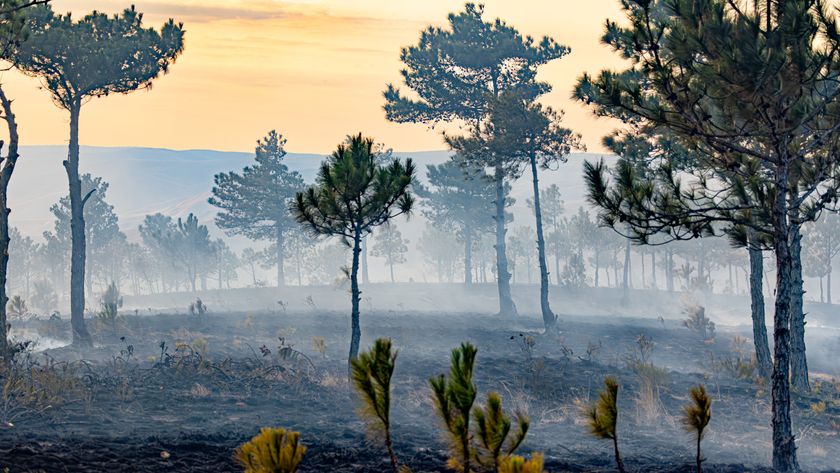EPA Won't Specify Global Warming Plans

WASHINGTON (AP) — The head of the Environmental Protection Agency repeatedly refused to say Tuesday how soon he will comply with a Supreme Court ruling and decide whether to regulate carbon dioxide, the leading gas linked to global warming.
EPA Administrator Stephen Johnson, appearing before the Senate Environment and Public Works Committee, was asked repeatedly to provide a timetable for responding to the April 2 Supreme Court decisions. The court said the Clean Air Act makes clear the agency must regulate carbon dioxide if it's found that it endangers public health.
The legal argument has been settled and “now there's is an unmistakable green light to take action now,'' Sen. Barbara Boxer, D-Calif., the committee's chairman, told Johnson: “There is no excuse for delay.''
But Johnson called the court's ruling complex and said he did not want to be tied to a specific timetable.
“I'm not going to be forced into making a snap decision,'' he later told reporters.
When Boxer said EPA staff had indicated the agency could make a decision on regulating carbon dioxide emissions from motor vehicles in three or four months, Johnson said he would “not commit to a specific four-month schedule.''
“We will move expeditiously, but we are going to be moving responsibly,'' said Johnson, a variation of a phrase he used again and again when pressed by senators on a timetable.
Sign up for the Live Science daily newsletter now
Get the world’s most fascinating discoveries delivered straight to your inbox.
“I don't hear in your voice a sense of urgency,'' Boxer told Johnson.
While the court's decision focused on tailpipe emissions from cars and trucks, Johnson said the agency is evaluating what impact the ruling might have on the need to regulate releases from power plants and industrial sources as well.
“Why has it been so difficult to convince you that your agency should protect the environment?'' Sen. Frank Lautenberg, D-N.J., asked Johnson as he sat alone at the witness table.
“Stop denying the impact of global warming,'' Lautenberg continued.
Republican senators came to Johnson's defense.
“You are being pressured ... to make carbon regulation the central organizing principle of our society. I caution you against it,'' Sen. James Inhofe, R-Okla., told Johnson. Imhofe is perhaps the most vocal global warming skeptic in the Senate.
Sen. Kit Bond, R-Mo., added, “some have promised to hound you for quick action'' on carbon dioxide regulation, a reference to Boxer's promise that she would continue to press the EPA on the issue.
The Bush administration has long argued that it had no authority to regulate carbon dioxide under the Clean Air Act, an issue on which the court in 5-4 decision rejected. While the court did not say the EPA must regulate carbon, it said if it doesn't, it must show that carbon dioxide emissions are not a danger to public health.
Johnson reiterated President Bush has acknowledged concern about climate change and provided a long list of actions he said the administration is taking to deal with the issue, short of regulating greenhouse gases.
“What is the most serious environmental hazard that we face,'' Sen. Sheldon Whitehouse, D-R.I., asked, seeking an acknowledgment of risks of climate change.
“I don't see one being most serious,'' replied Johnson, a career scientist at the EPA before being named administrator in early 2005.
Whitehouse asked the question again. And Johnson again wouldn't be pinned down.
“You astonish me,'' Whitehouse snapped.
Later two former EPA administrators — Carol Browner from the Clinton administration, and William Reilly from the first Bush administration — said it is clear that carbon dioxide should be controlled because of its impact on global warming.
“If I were EPA administrator,'' Reilly said, “I would welcome that authority.''
- Top 10 Surprising Results of Global Warming
- Timeline: The Frightening Future of Earth
- EPA Chief: Bush Climate Policy Working
- All About Global Warming












